Alder Renewables develops technology that harnesses abundant, sustainable biomass to produce low-carbon renewable crude oil compatible with today’s infrastructure. Alder is uniquely positioned to enable existing refineries to produce advanced biofuels at a fraction of the capital and operating cost.
Our proprietary technology transforms abundant, sustainable biomass into infrastructure-ready biocrudes, delivering a full portfolio of renewable fuels without costly refinery investments
Sustainable feedstock supply shortage intensified by growing global demand
Stalled projects and unmet demand
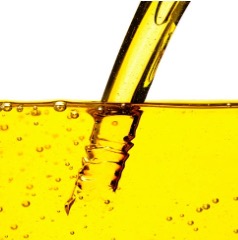

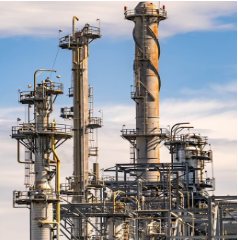
Meet current & future biocrude oil supply needs. No billion-dollar refinery conversion
Use abundant, sustainable biomass
Meet mandates profitably with residual forest feedstocks in North America and EU
Cost leader that can scale
High efficiency and low cost of production outperform alternative technologies
Minimal refinery investment
Leverage existing equipment to expand production & realize economies of scale
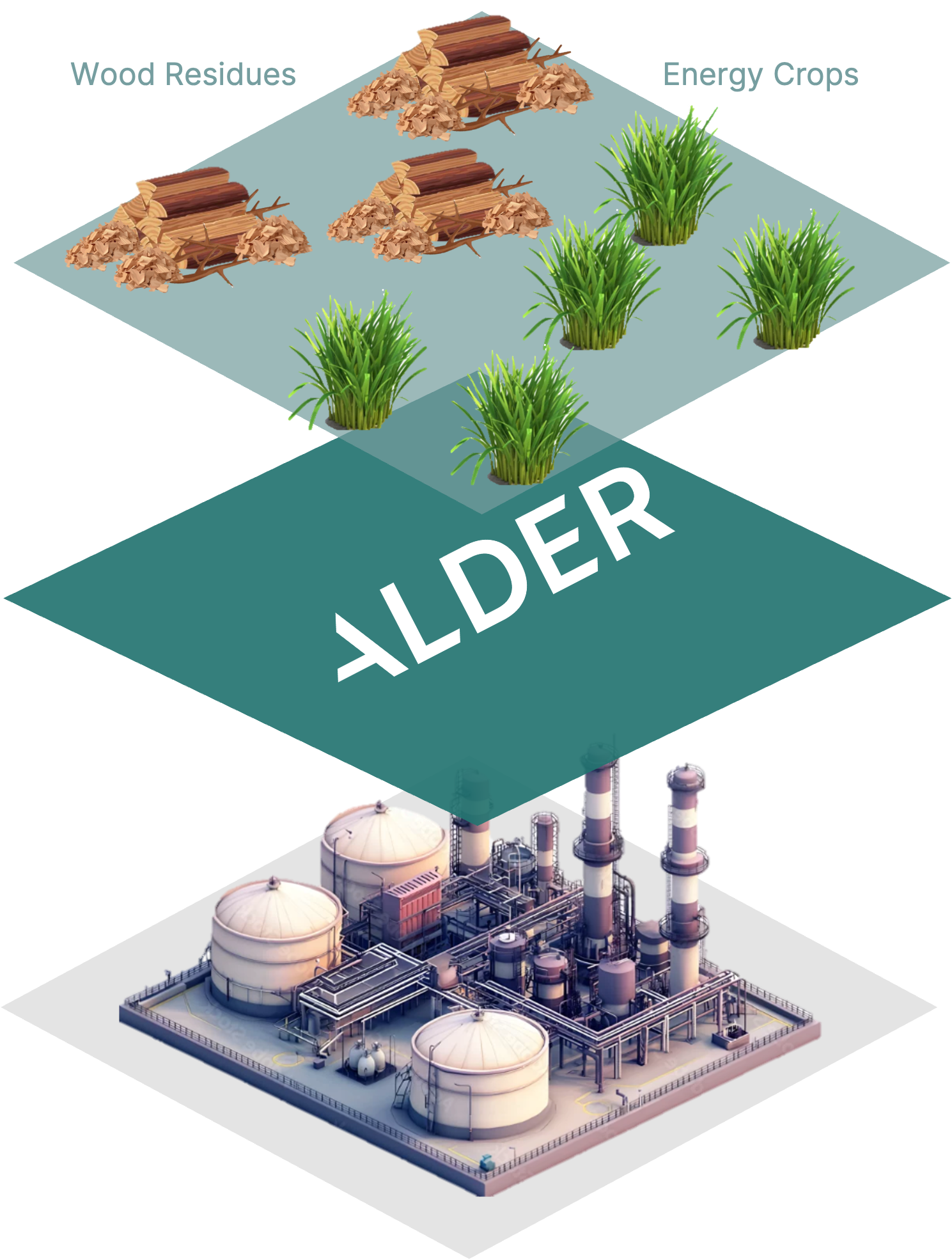
We work with industry, government, and academics to accelerate our technology commercialization
Building momentum with technology validation, strategic partnerships, and new projects
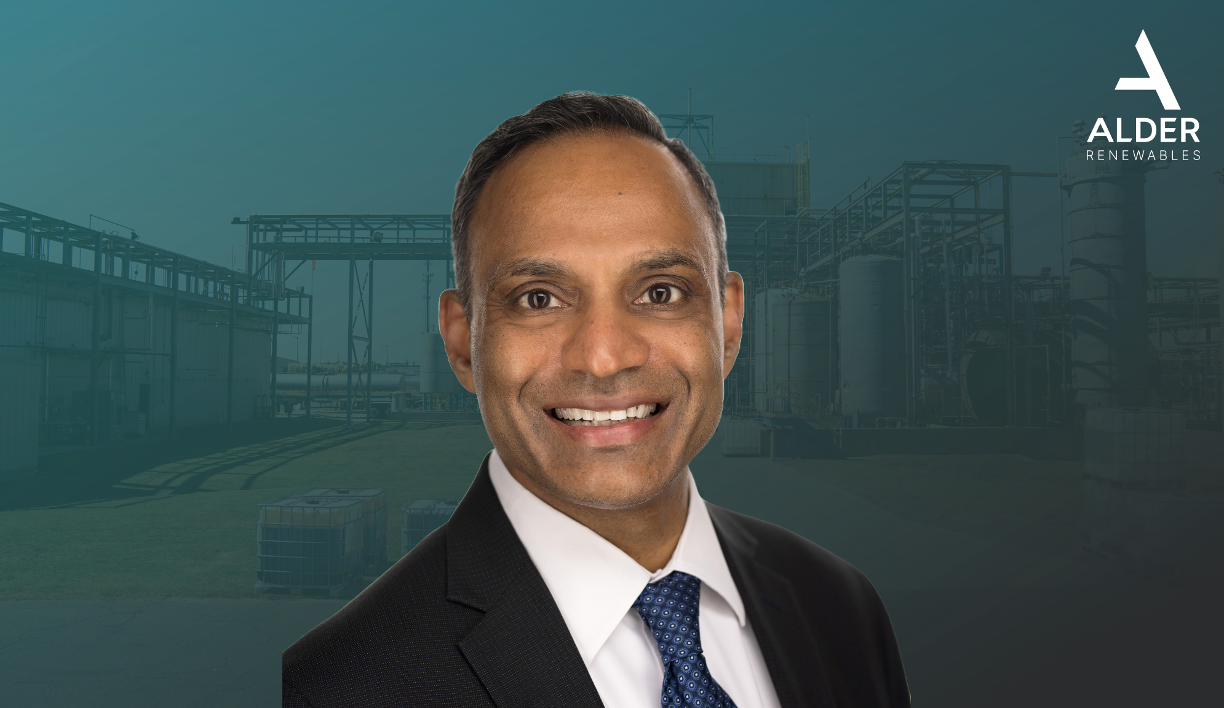
Neville Fernandes has joined Alder as President & Chief Operating Officer. He brings more than three decades of experience across renewable fuels, petroleum and chemical industries and is widely regarded for scaling innovative clean‑fuel businesses, developing new markets, and building relationships with investors, customers, suppliers, policymakers and stakeholders across the value chain.
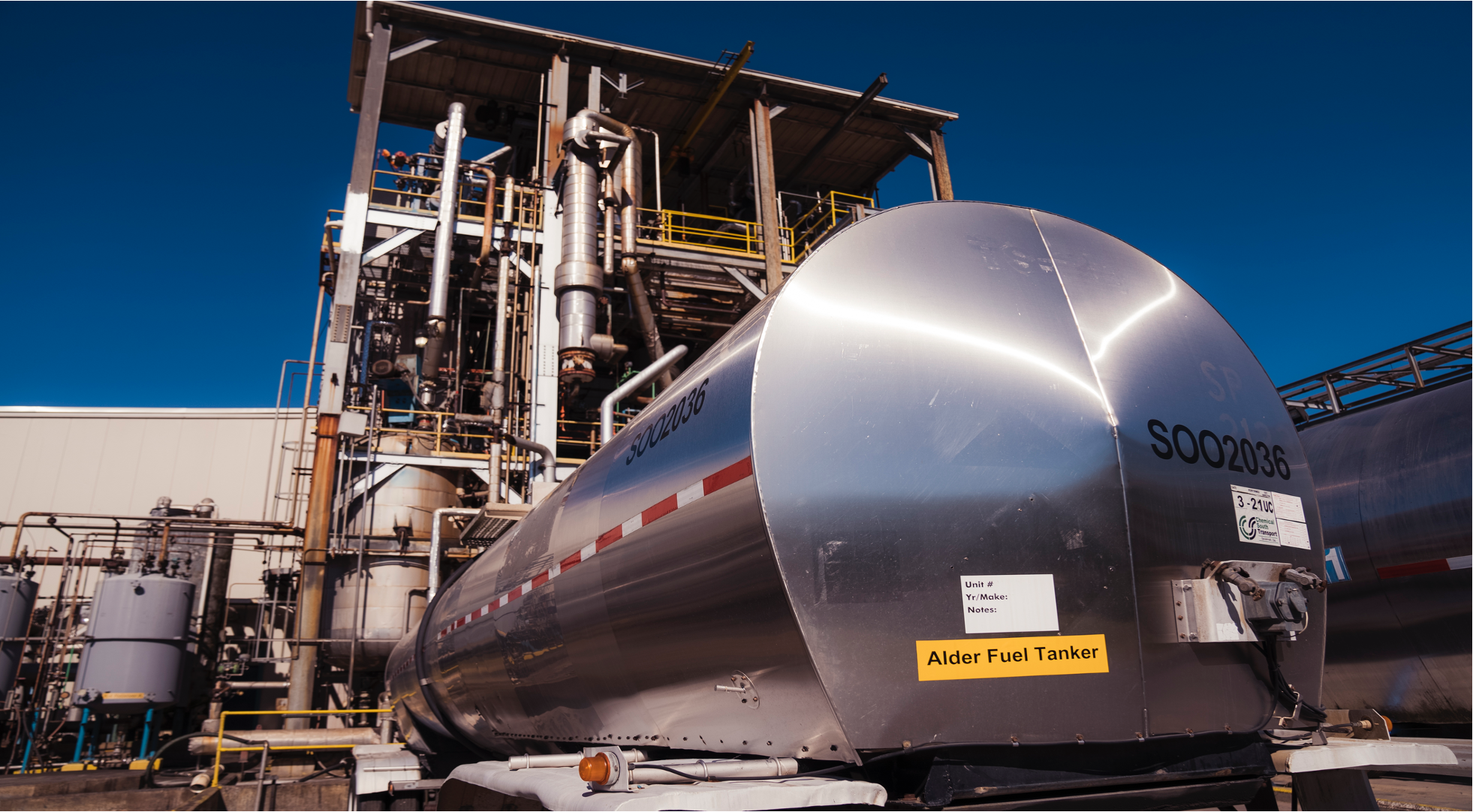
Together with Boeing and Bioénergie AE Côte-Nord, we are launching Project Avance to produce SAF from sawmill residues in Port-Cartier, Québec. Boeing is investing CAD $10 million in the project as part of its Industrial and Technological Benefits commitment to Canada. The project will use Alder’s technology to produce Alder Renewable Crude (ARC) for hydrotreating into SAF and other hydrocarbon fuels.

With NREL and industry partners, Alder has demonstrated that Alder Renewable Crude (ARC) can be co-processed in a pilot Fluid Catalytic Cracking (FCC) unit to produce gasoline, jet, diesel, and marine fuels in high yield and high quality. The next steps under evaluation is commercial-scale FCC trials with industry partners, paving the way for rapid deployment of low-carbon fuels using existing refinery infrastructure.